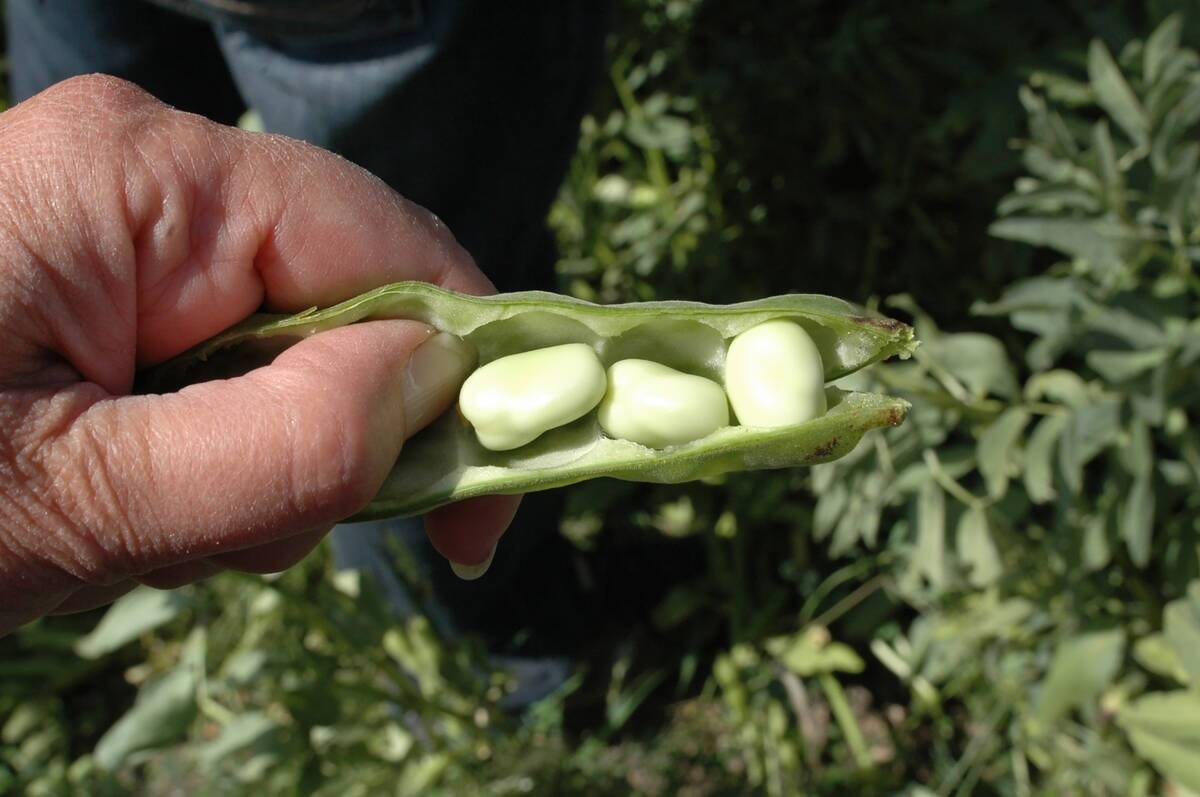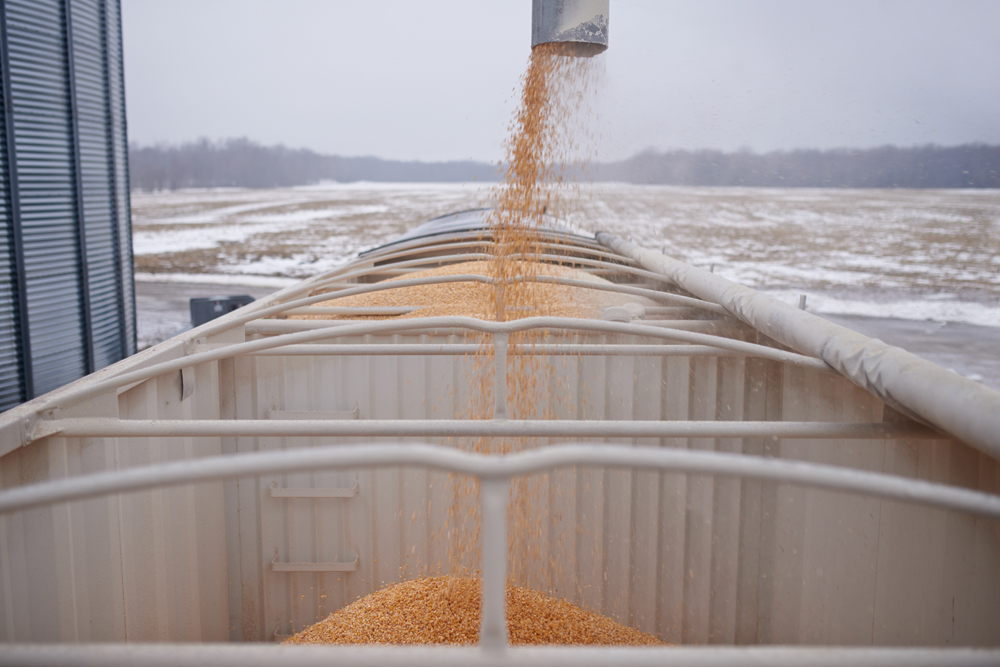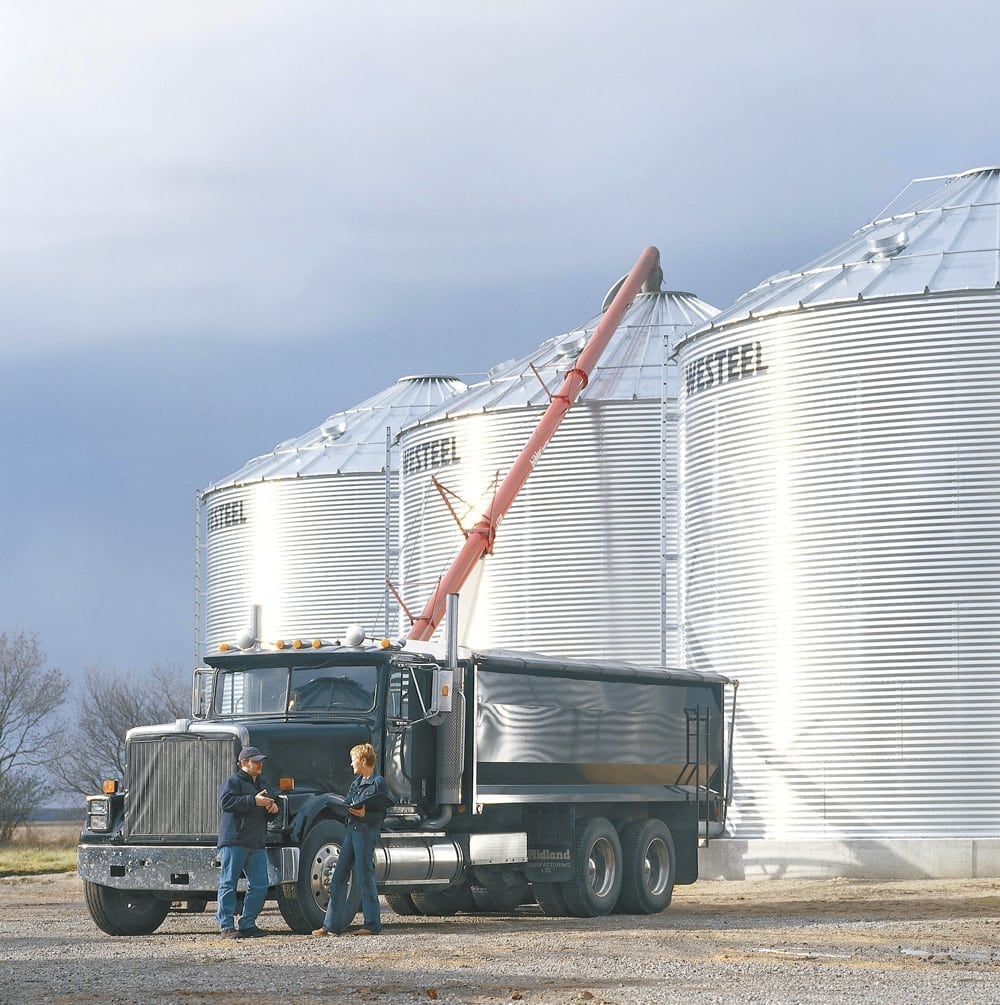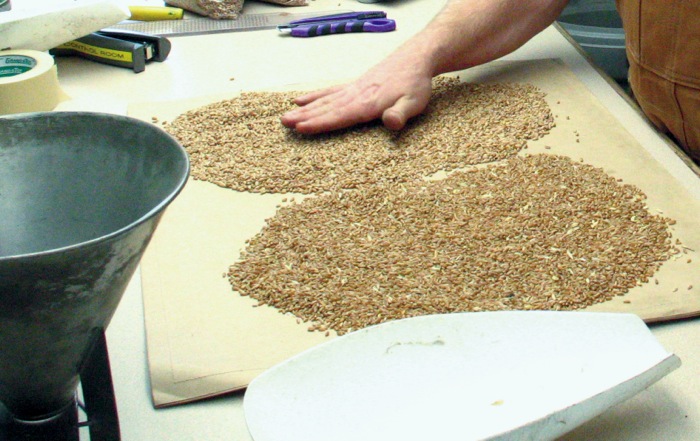Backlogs in the grain-handling system aren’t just hurting growers’ bottom lines — they’re also tarnishing Canada’s reputation as a reliable supplier, according to the CEO of Pulse Canada.
“We have to stop talking about railway statistics or country elevator statistics, and start talking about our reputation in markets around the world,” Gordon Bacon said at the Alberta Pulse Growers’ annual general meeting in late January.
“We’re telling customers to go somewhere else for grain because we’re not seen to be a reliable supplier of getting grain to market on time.”
Read Also

New crop insurer policy enables easier startup for faba beans
Agriculture Financial Services Corporation updated its normals for faba beans, which may open the door for more Canadian producers to feel comfortable growing the pulse crop in the future.
The statistics paint an alarming picture of how Canada is falling behind in its exports, he said. At the end of the past month, the country elevator system was at 90 per cent of its working capacity, while stocks at terminal elevators were 29 per cent lower than at the same time a year earlier.
“We have this real imbalance where there’s nothing in the terminals and the country elevators are full of stocks,” said Bacon.
Unloads are 18 to 22 per cent lower than the railways had forecast.
“The railways’ planned allocation versus their actual delivery has been reduced,” said Bacon. “We’re about 40,000 cars below what railways had planned to deliver, and we’re continuing to slip.”
In the Port of Vancouver, 15 of 22 “active anchors” in late January were grain vessels, and because all the anchoring spots in the port were taken, there were another 13 grain ships anchored off Vancouver Island. The demurrage costs for those ships will ultimately come out of producers’ pockets, Bacon said. Overall, Canada was “about four million tonnes behind” its planned export program, he said.
“Probably for the first time in history, a vessel left Thunder Bay empty before the ice came because there wasn’t grain to load in it,” said Bacon.
“These are all symptoms of problems that we have to address.”
From the Manitoba Co-operator website: Poor rail service blamed for some Canadian mills closing temporarily after running out of grain
In November, Agriculture and Agri-Food Canada Minister Gerry Ritz said he thought the railways were doing an “adequate” job of moving grain to markets. But days after Bacon spoke, the federal minister sounded a different note and ordered the railways to report on their performance monthly instead of every three months.
“To win and maintain our markets, Canada must not only be competitive on price and quality, but also on service and deliverable reliabilities,” he told reporters at a news conference in Winnipeg on Feb. 3. “Our government knows that action is needed now.”
In late January, Ritz also chipped in $1.5 million in matching dollars for a multi-sector collaboration to improve supply chain efficiency and reliability.
Pulse Canada is spearheading the initiative, with support from the Grain Growers of Canada, the Canadian Canola Growers Association, Western Grain Elevators Association, and Inland Terminals Association of Canada.
“We have an issue, and we have to do something about it,” said Bacon. “That’s where the program that we’re working on starts to come in.”
The funding will be used to develop a performance measurement system to understand where variability is occurring in the rail system.
“Performance measurement tells you where the problems are and whether the actions you’re taking are making any difference,” he said. “You can’t manage what you’re not measuring.”
Bacon said he also wants the railways to state how much grain they can guarantee will be moved between now and Aug. 1.
“Don’t talk to me about planned allocation. I want to know how much will be delivered.”
If the railways can’t clear the backlog before this year’s harvest, producers could be in for a tough year, he said.
“If it’s not moved, you’re going to be left with grain on the farm and cash flow issues and everything else that flows from there.”















